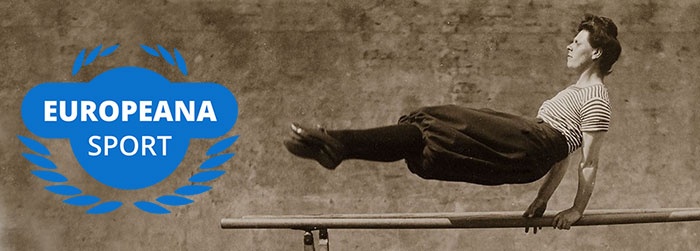How lockdowns in the Netherlands affected football
In 2020, in a matter of just a few weeks, national and international football was transformed due to the coronavirus pandemic. While this situation is undeniably exceptional, it is not the first time that a crisis impacts the world of sports to this extent.
Let’s look at some other times when football was locked down, with a particular focus on examples from the Netherlands.
1918-1920: the Spanish Flu
In many countries, football competitions were interrupted because of World War I, such as in Belgium, Germany and the United Kingdom. The outbreak of the Spanish flu also caused a similar phenomenon, in which many national competitions were also cancelled. The football world lost the opportunity to see many great players in action, such as the Scottish Angus Douglas and Dan McMichael, once manager of Hibernian FC.
In the Netherlands, C. Oosterwijk, a board member of Sparta Rotterdam, fell prey to the flu at the young age of thirty. In Winschoten, the famous footballer G. Schoonhoven, and in Deventer, Gerrit van Tongeren died as a result of the disease.
World War II: the ball kept rolling
International football came to a grinding halt during World War II. No international matches took place, nor were World Cups or the Olympic Games organised.
Despite this, football was still widely played on a national level in the Netherlands. After just a few weeks of the German invasion of the Netherlands, the Dutch competition was resumed. It is remarkable how this major societal crisis did not impact football to a great extent in this case.
Only in the last year of the war was football finally interrupted in the Netherlands.
3 September 1944 marked the last day of organised football in the country during wartime. Dolle Dinsdag (Mad Tuesday) took place only two days later: a day where the whole country prematurely celebrated the Allied troops’ victory over the Germans. This turned out to be based wholly on a rumour, and ended up paralysing public life altogether.
Because of World War II, FIFA decided to host the 1946 World Cup in Brazil. Choosing a country outside of Europe was a conscious decision, given the continent was still recovering from the ravages of the war. The idea was to have two catch-up World Cups, according to Dutch FIFA member Karel Lotsy. Brazil was to host the 1949 cup, and Switzerland the 1951 cup.
This idea was never carried out in practice: the 1949 cup did not take place as preparations for it were insufficient. It was postponed until 1950. The World Cup of 1951 never took place.
1951: Smallpox in Tilburg
On 30 April 1951, the first case of smallpox - a lethal infectious disease eradicated by the late 1970s - was diagnosed in Tilburg. This resulted in a complete lockdown of the city.
The football team Willem II, based in Tilburg, had just become champions of the Dutch First D Class division, which would have qualified them to play against the other division champions.
The first home match against SC Heerenveen did not take place, given trains were not allowed to stop in Tilburg for a whole month. An away match against the Amsterdam-based Blauw-Wit was likewise postponed.
On 27 May 1951, PSV was the first team to arrive in Tilburg to face Willem II, but only home supporters in possession of a certificate of vaccination were allowed to attend the match. The PSV players played with no fans on the stands and were instructed to go directly from the bus to the pitch.
The club wrote a short article about this epidemic as well, accessible here in Dutch.
1956 and 1973: Oil crises
The closure of the Suez Canal, called the Suez Crisis, took place in 1956. Because of the scarcity of petrol, the Netherlands enforced car-free Sundays from 23 November 1956 to 3 February 1957.
The FA was perfectly aware that clubs would financially suffer from the decrease in ticket sales. In some matches, the amount of spectators was immediately reduced to half. Practical jokers in Rotterdam and Limburg traded their cars for horses and travelled to football games on them.
In 1973, an oil crisis occurred when the most important Middle Eastern oil producing countries decided to cut supply to a number of Western countries, as a reaction to their support for the state of Israel. Once again, football suffered due to the resulting oil shortages.
Most night-time matches in England and Germany were cancelled from late November until late January in order to save energy. Matches in the Belgian first division were moved from Sunday 2 November to Saturday 1 November – a never-before-seen move by the Belgian association. A team as prominent as Arsenal got close to bankruptcy due to these measures.
On the other hand, Italian football was basically not impacted by the crisis. Even more Italian fans attended football games during their first car-free Sunday, under rain, snow or sleet!
Share your sport story
Can you help us to tell the story of sport in Europe in the past and the present?
We invite you to tell us about your sport experiences through objects like photographs, memorabilia, equipment or prizes.
Share your story →
To explore more Dutch sport history by Jurryt van de Vooren, visit Sportgeschiedenis.nl.
Football Makes History is an educational project funded by the EU Erasmus+ Programme bringing together history educators and youth workers from all over Europe to develop new educational resources that can help young people explore European history and heritage through the lens of football, as well as use football to tackle social exclusion.

